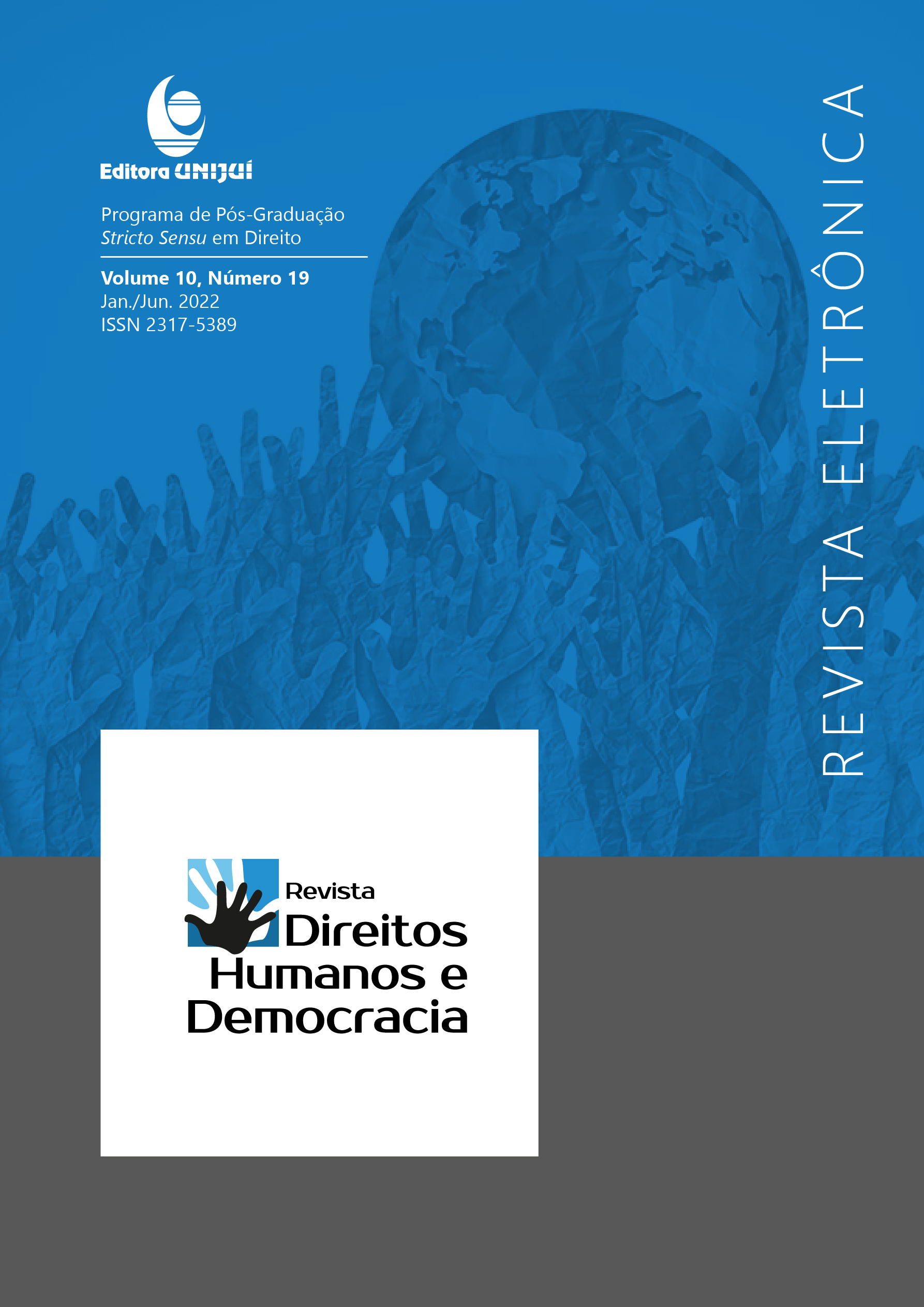Tecnologias no Judiciário em Prol dos Direitos da Personalidade
DOI:
https://doi.org/10.21527/2317-5389.2022.19.13303Palavras-chave:
Direitos da Personalidade e Fundamentais; Inteligência Artificial (IA); Modelo Prometeu; Poder Judiciário; Políticas PúblicasResumo
O objetivo desse artigo é apresentar o desenvolvimento de um modelo de processamento de dados, denominado “Prometeu”, que pretende reduzir o volume de demandas no Poder Judiciário, prevendo que no futuro, o mesmo se utilize das ferramentas da Inteligência Artificial (IA). O recorte metodológico elegeu a instância do Superior Tribunal Federal (STF). O modelo pretende estabelecer um padrão de captação de dados no momento do protocolo da demanda, bem como ao fim, com o julgamento, e assim criar um banco com palavras-chave que organizadas mostrarão quais e com que frequência determinados temas surgem. O diferencial do modelo é que os dados gerados sejam encaminhados aos demais Poderes para compor agenda de políticas públicas pertinentes. A conclusão mostra que “Prometeu” é uma ferramenta eficiente para o Judiciário e demais poderes que terão acesso a dados e informações confiáveis para a concretização dos direitos da personalidade e fundamentais. O referencial teórico se sustenta em Peter Häberle e Leonardo Secchi. Na metodologia, a pesquisa se utilizou da revisão bibliográfica em bases de dados de revistas especializadas, doutrina e legislação, bem como notícias jornalísticas. O método utilizado é o hipotético dedutivo para investigar o problema do acúmulo de processos no Judiciário.
Downloads
Publicado
Como Citar
Edição
Seção
Licença
Ao publicar na Revista Direitos Humanos e Democracia, os autores concordam com os seguintes termos:
Os trabalhos seguem a licença Creative Commons Atribuição 4.0 Internacional (CC BY 4.0), que permite:
Compartilhar — copiar e redistribuir o material em qualquer meio ou formato;
Adaptar — remixar, transformar e criar a partir do material para qualquer fim, inclusive comercial.
Essas permissões são irrevogáveis, desde que respeitados os seguintes termos:
Atribuição — os autores devem ser devidamente creditados, com link para a licença e indicação de eventuais alterações realizadas.
Sem restrições adicionais — não podem ser aplicadas condições legais ou tecnológicas que restrinjam o uso permitido pela licença.
Avisos:
A licença não se aplica a elementos em domínio público ou cobertos por exceções legais.
A licença não garante todos os direitos necessários para usos específicos (ex.: direitos de imagem, privacidade ou morais).
A revista não se responsabiliza pelas opiniões expressas nos artigos, que são de exclusiva responsabilidade dos autores. O Editor, com o apoio do Comitê Editorial, reserva-se o direito de sugerir ou solicitar modificações quando necessário.
Somente serão aceitos artigos científicos originais, com resultados de pesquisas de interesse que não tenham sido publicados nem submetidos simultaneamente a outro periódico com o mesmo objetivo.
A menção a marcas comerciais ou produtos específicos destina-se apenas à identificação, sem qualquer vínculo promocional por parte dos autores ou da revista.
Contrato de Licença: Os autores mantém os direitos autorais sobre seu artigo, e concedem a Revista Direitos Humanos e Democracia o direito de primeira publicação.













